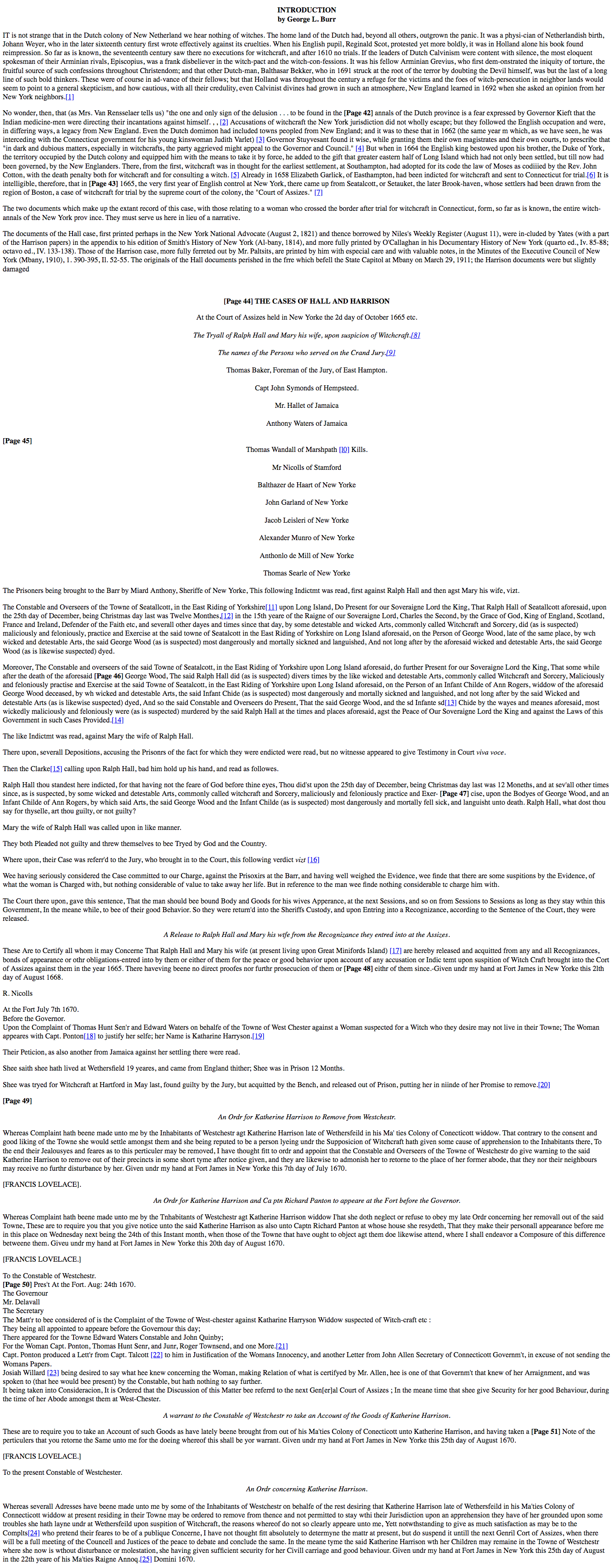The Hanover Witch Trials: A Dark Chapter In History
The Hanover Witch Trials represent one of the darkest periods in European history, marking a time when fear and superstition led to the persecution of innocent individuals accused of witchcraft. Set against the backdrop of the 17th century, these trials unfolded in the Duchy of Hanover, a region now part of modern-day Germany. The events that transpired during this period highlight the dangers of mass hysteria and the devastating consequences of societal paranoia. Through an exploration of the historical context, the trials themselves, and their lasting impact, we uncover the complexities of this troubling era.
While witch hunts were not unique to Hanover, the trials that took place in this region stand out due to their scale and brutality. Over a span of several decades, countless men and women were accused, interrogated, and executed under the guise of protecting society. This article delves into the details of these trials, offering a comprehensive understanding of their origins, the key figures involved, and the aftermath that shaped public perception for generations to come.
Understanding the Hanover Witch Trials requires examining the broader historical context of witchcraft accusations across Europe. By exploring the societal, religious, and political factors that contributed to these trials, we gain insight into the motivations behind the persecution of alleged witches. This article aims to shed light on this grim chapter in history, ensuring that the lessons learned are not forgotten.
Read also:Gary Drayton Age Unveiling The Life And Career Of The Renowned Metal Detector Expert
What Triggered the Hanover Witch Trials?
Witchcraft accusations during the 17th century were often fueled by a combination of fear, superstition, and political agendas. In Hanover, the trials were triggered by a series of events that created a perfect storm of suspicion and paranoia. Religious tensions between Protestant and Catholic factions, coupled with economic hardship and natural disasters, contributed to a climate where witchcraft was blamed for societal ills. This section explores the specific triggers that led to the outbreak of the Hanover Witch Trials.
- Religious conflicts in the region
- Economic struggles and their impact on society
- The role of natural disasters in fostering fear
How Did the Trials Unfold?
The Hanover Witch Trials were characterized by their systematic nature, with victims subjected to grueling interrogations and harsh punishments. Torture was commonly employed to extract confessions, often leading to false admissions of guilt. This section examines the process by which individuals were accused, tried, and sentenced, highlighting the lack of due process and the devastating consequences for those involved. The hanover witch trials provide a chilling example of how justice can be perverted by fear and prejudice.
Why Were Women Primarily Targeted?
One of the most striking aspects of the Hanover Witch Trials was the disproportionate targeting of women. Historical records indicate that the majority of those accused and executed were women, reflecting deeply ingrained societal biases and gender roles. This section investigates the reasons behind this trend, exploring the cultural and social factors that made women particularly vulnerable to accusations of witchcraft. By understanding why women were primarily targeted, we gain insight into the broader implications of gender-based persecution during this period.
Biography: Key Figures in the Hanover Witch Trials
| Name | Role | Personal Details |
|---|---|---|
| John George II | Duke of Hanover | Born in 1630; ruled from 1665 to 1679 |
| Margarete Koch | Accused Witch | Executed in 1666; mother of three |
What Was the Impact of the Hanover Witch Trials?
The aftermath of the Hanover Witch Trials left an indelible mark on the region, shaping public perception and influencing future legal practices. While the trials eventually came to an end, their legacy persisted in the form of lingering fear and mistrust. This section examines the long-term impact of the trials, both on the individuals directly affected and on the broader societal landscape. The hanover witch trials serve as a reminder of the dangers of unchecked power and the importance of safeguarding justice.
How Were the Trials Perceived by the Public?
Public opinion regarding the Hanover Witch Trials was shaped by a variety of factors, including religious teachings, media portrayals, and personal experiences. While some viewed the trials as necessary to protect society, others questioned their legitimacy and fairness. This section explores the diverse perspectives held by the public during this period, offering insight into the complex dynamics at play. Understanding how the trials were perceived by the public helps us grasp the broader societal implications of these events.
What Lessons Can We Learn from the Hanover Witch Trials?
Reflecting on the Hanover Witch Trials provides valuable lessons about the dangers of mass hysteria, the importance of due process, and the need for critical thinking. By studying this dark chapter in history, we gain a deeper understanding of the factors that can lead to the persecution of innocent individuals. This section examines the lessons learned from the trials and how they continue to resonate in modern times.
Read also:What Episode Does Morgan Leave Criminal Minds A Comprehensive Guide
How Did the Hanover Witch Trials Influence Future Legal Reforms?
The horrors of the Hanover Witch Trials eventually led to significant legal reforms aimed at preventing similar injustices in the future. Recognizing the flaws in the judicial system, lawmakers implemented measures to ensure fair trials and protect the rights of the accused. This section explores the impact of the trials on the development of modern legal systems, highlighting the progress made in safeguarding justice and human rights.
Why Should We Remember the Hanover Witch Trials?
Remembering the Hanover Witch Trials is essential to preventing the repetition of such atrocities in the future. By acknowledging the mistakes of the past, we honor the memory of those who suffered and work towards a more just and equitable society. This section emphasizes the importance of remembrance and education in fostering a world where fear and superstition no longer dictate the course of justice.
Conclusion: The Legacy of the Hanover Witch Trials
The Hanover Witch Trials remain a powerful reminder of the dangers of fear, superstition, and unchecked power. Through an exploration of their origins, execution, and aftermath, we gain insight into the complexities of this troubling era. While the trials themselves may have ended centuries ago, their legacy continues to shape our understanding of justice, human rights, and the importance of critical thinking. By learning from the past, we strive to create a future where such injustices are never repeated.
Table of Contents
- What Triggered the Hanover Witch Trials?
- How Did the Trials Unfold?
- Why Were Women Primarily Targeted?
- Biography: Key Figures in the Hanover Witch Trials
- What Was the Impact of the Hanover Witch Trials?
- How Were the Trials Perceived by the Public?
- What Lessons Can We Learn from the Hanover Witch Trials?
- How Did the Hanover Witch Trials Influence Future Legal Reforms?
- Why Should We Remember the Hanover Witch Trials?
- Conclusion: The Legacy of the Hanover Witch Trials
Article Recommendations

